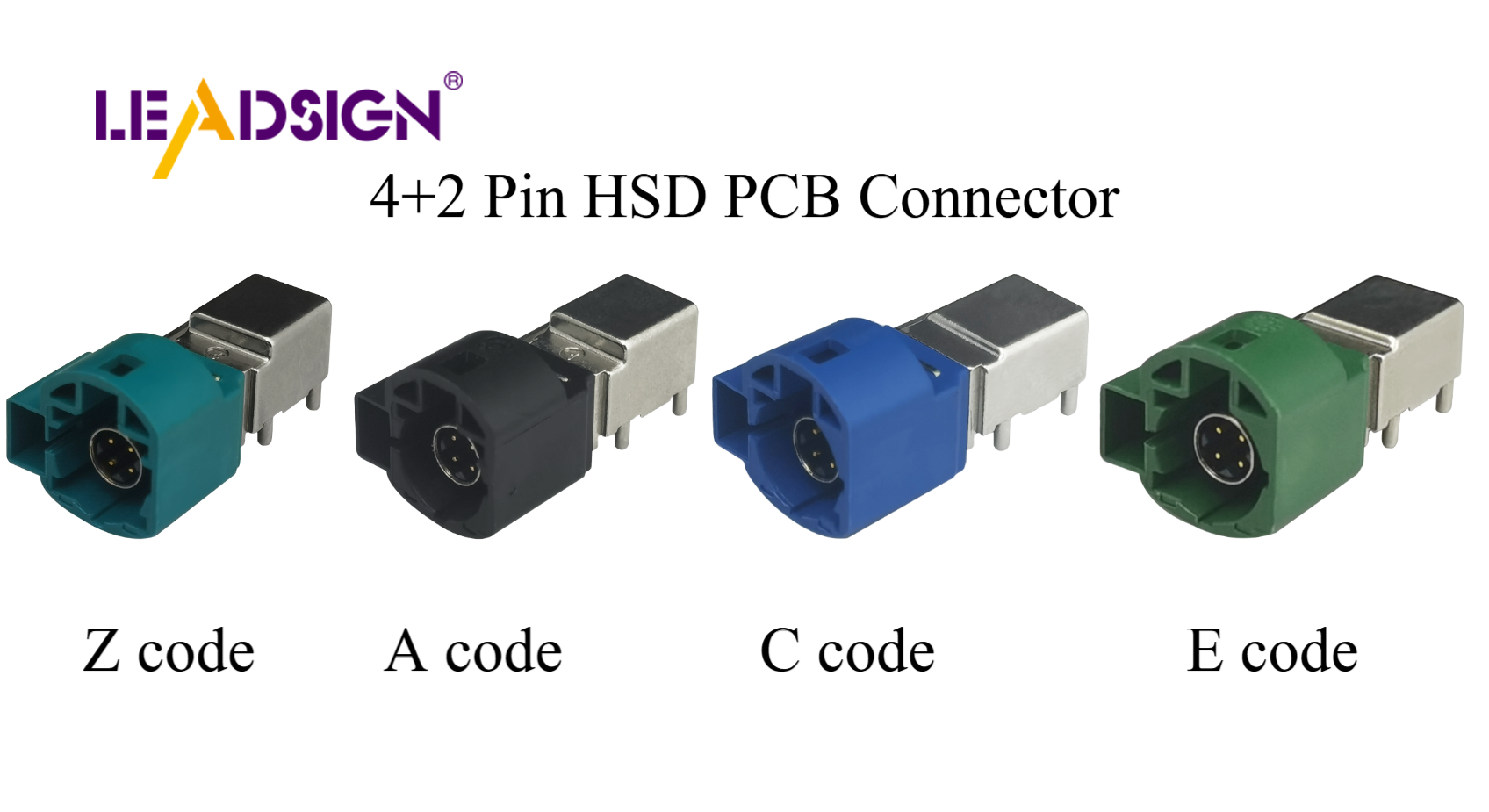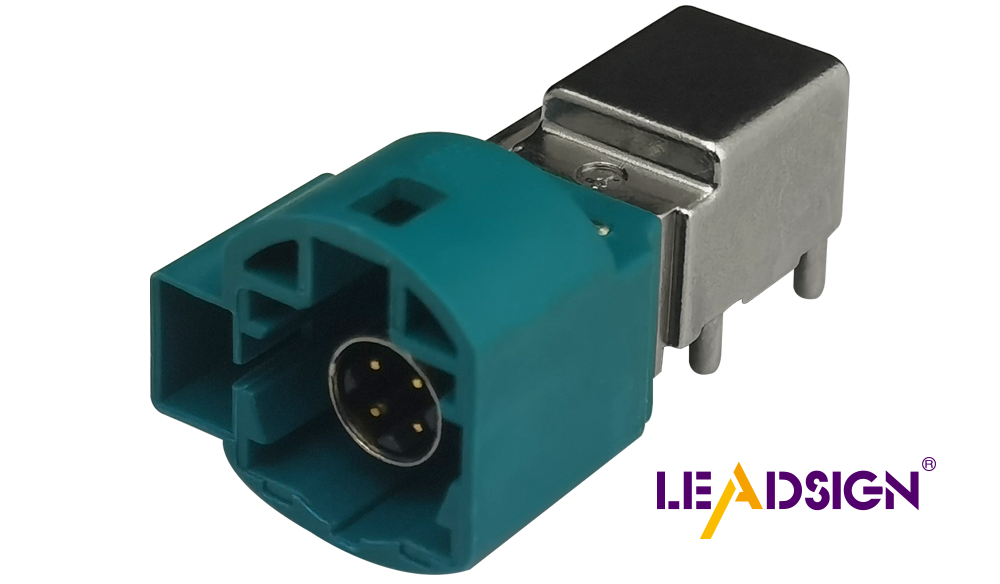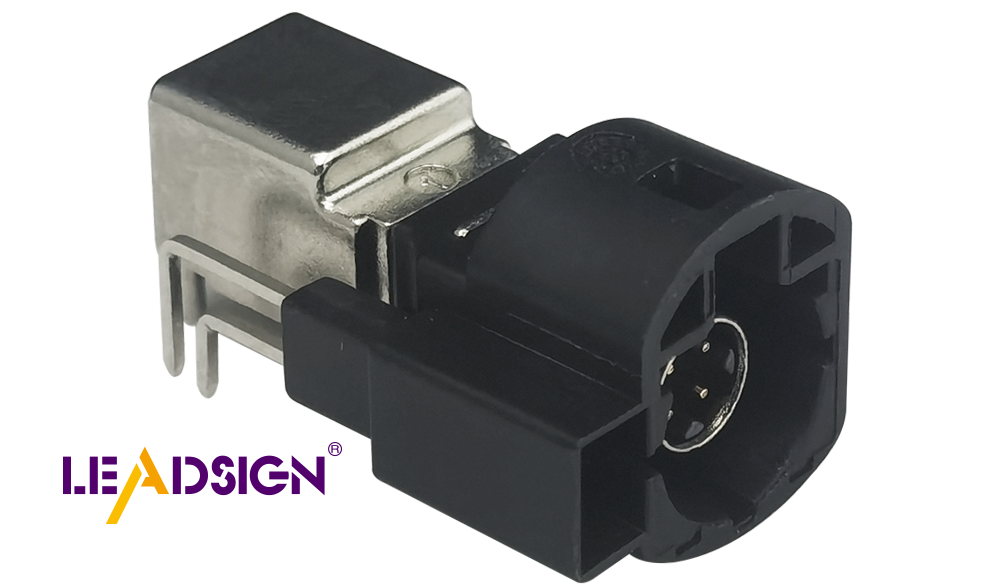Finding the Perfect Automotive Plugs and Connectors for Your Vehicle

Automotive plugs and connectors are very important for your car. They help your car's electrical system work properly by linking key parts. Picking the right automotive plugs and connectors helps your car run well and stay safe. Bad or wrong connectors can cause electrical problems and expensive fixes. Good connectors make your car work better and keep it safe from things like water or heat. Choosing wisely protects your car’s electrical parts and helps it last longer.
Key Takeaways
Choosing the right automotive plugs and connectors is crucial for your car's electrical system, ensuring optimal performance and safety.
Understand the different types of connectors—blade, pin, weatherproof, and specialty connectors—to select the best fit for your vehicle's needs.
Always check the pin count, layout, and material quality of connectors to ensure compatibility and durability, preventing costly repairs.
Regularly inspect and maintain your connectors to avoid wear and tear, ensuring they remain reliable and functional over time.
Use the appropriate tools for installation, such as crimpers and wire strippers, to ensure strong connections and prevent damage.
Investing in high-quality connectors can save you money in the long run by reducing the risk of overheating, sparking, or other electrical issues.
Understanding Automotive Plugs and Connectors

Automotive connectors are key to your car's electrical system. These small parts connect different electronic components in your vehicle. They help power and data move smoothly between parts. Without good connectors, your car might not work well. This could lead to problems or expensive repairs. Knowing their purpose and types helps you pick the right ones.
The Role of Automotive Electrical Connectors
Connectors are like the glue for your car's electronics. They link sensors, control units, and other important systems. This connection helps your car run safely and efficiently. For example, a connector might join a sensor to the engine system. This allows the car to adjust based on real-time data. Connectors are built to last, even in tough conditions like heat or vibrations.
Types of Automotive Plugs and Connectors
Picking the right connector depends on your car's needs. Each type has its own job and benefits.
Blade connectors
Blade connectors are flat and easy to use. They slide into slots and work well for small electrical loads. You’ll find them in things like lights or small motors.
Pin connectors
Pin connectors have pins that fit into sockets. They are great for tight spaces needing multiple connections. Wiring harnesses often use them to link parts together.
Weatherproof connectors
Weatherproof connectors keep out water, dirt, and debris. They are perfect for outdoor parts like headlights or undercarriage wiring. They last long, even in bad weather.
Specialty connectors for high-speed data and infotainment systems
Specialty connectors handle advanced car tech like USB or Ethernet. They are used for infotainment systems and fast data transfer. These connectors prevent mistakes and hold cables securely. They are important for modern cars with advanced features.
By learning about these connectors, you can choose the best ones. This keeps your car’s electrical system working well and reliably.
Key Features to Check When Picking the Right Connector
Choosing the right car connectors means knowing what to look for. These features affect how well your car's electrical system works.
Pin Count and Setup
The number of pins and their setup decide if a connector fits. Each pin sends power or data to different parts. More pins mean more connections, which is needed for advanced systems. But the setup must match your car’s needs. If pins don’t line up, it can cause bad connections or failures. Always check the pin number and layout before buying.
Material and Quality
The material and quality of connectors matter a lot. Good ones use strong metals like copper or aluminum for better power flow. Some even have gold or silver coatings to stop signal loss. Tough insulation keeps them safe from damage and lasts longer. Strong connectors lower the chance of overheating or short circuits. Look for ones tested for high standards and safety.
Protection Against Weather
Car connectors need to handle tough weather. Water, heat, and shaking can make them stop working. Weatherproof connectors with seals block water and dirt. Some are made to resist chemicals, perfect for engine or undercarriage use. Pick connectors with self-cleaning parts and strong build for tough conditions.
By checking these features, you can find connectors that work well. This helps avoid problems, saves money on repairs, and keeps your car running longer.
Electrical Specifications and Load Capacity
Knowing the electrical limits of connectors is very important. Each connector is made to handle certain voltage, current, and frequency needs. Picking the right one stops problems and improves performance.
The voltage rating shows how much power a connector can handle. Using one with a lower rating can cause overheating or damage. Always check your car's system to match the connector's voltage.
The current rating tells how much electricity the connector can carry safely. Strong connectors, like those made of copper, work better and stay cool. For high-power systems, choose connectors with higher current ratings.
Frequency requirements matter for fast data systems like USB or Ethernet. Special connectors for these jobs keep data steady and reliable. They often have gold or silver parts to stop signal loss.
For long-lasting use, pick connectors with strong insulation and self-cleaning parts. These features protect against water, heat, and shaking. Sealed connectors are great for tough conditions.
Choosing the right connectors avoids repairs and keeps your car working well. This helps your car's electrical system last longer.
Steps to Find the Right Connector for Your Car
Picking the right connector means knowing your car's electrical needs. Follow these steps to choose wisely and keep your car working well.
Know Your Car's Electrical Needs
First, check what your car needs for electrical connections. Look at systems like lights, infotainment, or engine parts. Each system has its own power and data needs. For example, fast data systems like USB or Ethernet need special connectors for quick and steady data flow.
Read your car manual or ask an expert to learn about voltage, current, and frequency needs. This helps you pick connectors that handle power safely without overheating. Knowing these details stops you from choosing the wrong connectors that might harm your car.
Choose the Right Connector for the Job
Different systems need different connectors. Match the connector type to the system for the best results. For example:
Blade connectors are good for simple things like lights or small motors.
Pin connectors fit tight spaces needing many connections.
Weatherproof connectors protect outdoor parts like headlights from water and dirt.
Specialty connectors are made for advanced systems like infotainment or fast data transfer.
Using the right connector makes your car's electrical system stronger and more reliable.
Check If It Fits Your Car
Before buying, make sure the connector works with your car. Check the pin count, layout, and size to ensure it fits properly. Wrong connectors can cause bad connections or even safety problems.
Look at the material and quality of the connector. Strong metals and good insulation make connectors last longer and work better. Reviews and product details can help you decide if the connector is right for your car.
By following these steps, you can find the best connector. This improves your car's electrical system and avoids expensive repairs.
Focus on Quality and Durability
Choosing good connectors keeps your car's electrical system reliable. Strong connectors improve performance and lower the chance of costly problems.
Check the materials used in the connector. Good ones are made of tough plastic or metal to last longer. Look for connectors with copper or aluminum contacts. These metals carry power and data well. Some have gold or silver coatings to stop rust and keep signals clear.
Pay attention to how the connector is built. A strong connector has parts like contacts, insulators, and seals. Insulators protect the inside from damage, while seals block water and dirt. These features are important for connectors in tough spots like engines or under the car.
Read customer reviews to learn about the connector's quality. Reviews show how well it works and lasts over time. Look for feedback about durability and steady performance. This helps you pick a connector that fits your needs.
Think about where the connector will be used. Some need to handle heavy use, like in data systems or entertainment setups. Picking the right connector for the job makes it work better and last longer.
By choosing durable connectors, you protect your car's electrical system. Good connectors save money and keep your car running well for years.
Practical Tips for Ensuring Compatibility and Durability

Use the Right Tools for Installation
Using proper tools helps connectors work well and last longer. Tools like crimpers, wire strippers, and torque wrenches are important. Crimpers press metal contacts tightly for strong connections. Wire strippers remove insulation without harming the wires. Torque wrenches tighten bolts correctly to avoid over-tightening or loosening.
Do not use random tools, as they can harm connectors or wires. Damaged parts may cause bad connections or electrical problems. Always follow the maker's instructions for tools. This improves performance and lowers the chance of costly repairs.
Check and Maintain Regularly
Regular checks keep connectors working properly. Look for wear, rust, or loose connections. Rust can weaken metal and stop electricity from flowing well. Loose connections might cause problems or system failure.
Clean connectors often to remove dirt or dust. Use a soft brush or air to clean gently. For tough dirt, use a special automotive contact cleaner. Do not use water or household cleaners, as they can harm the connectors.
During checks, make sure all connectors are tight. Fix any loose ones to keep them reliable. Regular care stops small problems from becoming big ones, saving time and money.
Store Extra Connectors Safely
Storing spare connectors properly makes them last longer. Keep them in a dry, clean place to avoid rust or dirt. Use labeled boxes to organize them by type for easy access.
Do not leave spare connectors in extreme heat or cold. Heat can damage plastic, and cold can make it crack. Store them in a temperature-controlled spot to keep them strong.
When handling spares, wear gloves to keep them clean. Check and clean them before use to ensure they are in good shape. Safe storage keeps your connectors ready and protects your investment.
Picking the right car plugs and connectors is very important. They help your car's electrical system work well and last longer. Learn about the types of connectors and their features. This helps you choose better ones for your car. Good connectors are safe and reliable. Experts say spending more on quality connectors is worth it. They last longer and lower repair costs over time. Always pick connectors that fit your car and are strong. This avoids problems and keeps your car running smoothly for years.
FAQ
What happens if I use the wrong automotive connector?
Using the wrong connector can cause big problems. It might stop power flow or harm car parts. For example, a wrong connector might not power lights or the engine. This can lead to bad performance or costly fixes. Always pick connectors that match your car's type for best results.
Why is it important to choose high-quality connectors?
Good connectors keep your car safe and working well. Cheap ones can overheat, spark, or even start fires. They might also break or damage other parts. Strong connectors protect your car and save money on repairs.
How do I know which connector fits my car?
Check your car manual or ask an expert for help. Look at pin numbers, layout, and power needs. Matching these makes sure the connector works with your car. The right connector improves how your car runs and avoids problems.
Can poor-quality connectors affect my car's safety?
Yes, bad connectors can be dangerous. They might spark, overheat, or even cause fires. This can hurt passengers and damage the car. Picking safe connectors protects everyone and keeps the car working well.
How often should I inspect my car's connectors?
Check your connectors every few months. Look for rust, damage, or loose parts. Pay extra attention to areas near heat or water. Fixing problems early stops bigger issues later.
What tools should I use for installing connectors?
Use tools like crimpers, wire strippers, and wrenches. Crimpers make tight connections, and strippers remove wire covers safely. Wrenches tighten bolts just right. Don’t use random tools, as they can damage connectors.
Are weatherproof connectors necessary for all vehicles?
Weatherproof connectors are great for outdoor parts like headlights. They block water, dirt, and dust. If your car faces tough weather, these connectors are a smart choice.
What are the risks of not maintaining connectors?
Skipping maintenance can cause rust, loose parts, or system failures. For example, bad connectors might make lights flicker or engines misfire. Regular checks and cleaning keep your car running smoothly.
Can I reuse old connectors?
You can reuse connectors if they’re still in good shape. Check for rust or damage before using them again. Clean them well and make sure they fit your car’s needs. For important systems, new connectors are safer.
Why should I follow the manufacturer's installation guidelines?
Following instructions ensures the connectors work properly. Wrong installation can harm your car’s electrical system. Sticking to the guide avoids mistakes and keeps your car running well.
See Also
Why Fakra Connectors Are Essential For Today's Cars
Improving Vehicle Data Flow With Superior Connectors And Cables
Boosting Data Transfer With High-Speed Automotive Connectors

